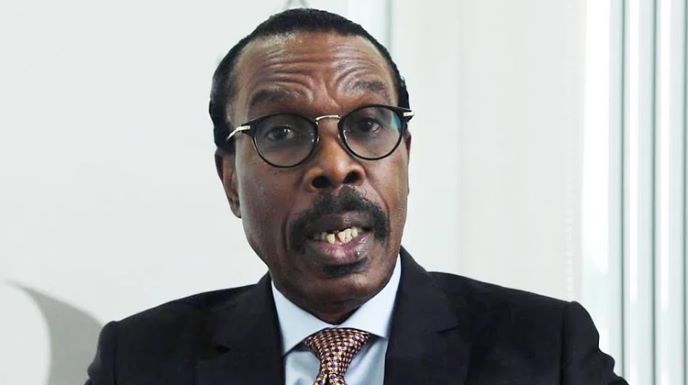Rewane says Naira undervalued, advocates policy changes

Mr Bismarck Rewane, Chief Executive officer (CEO), Financial Derivatives Company, said that government needed to focus on some policy changes, aimed at saving the Naira and steering Nigeria toward economic resilience in 2024.
Rewane said this during an Economic Outlook Session organised by the Lagos Chamber of Commerce and Industry (LCCI) on Tuesday in Lagos.
BRANDPOWER reports that the event has the theme: “Building Economic Resilience in 2024: Strategies for a Sustainable Future”.
He said the country’s key macroeconomic challenges included suboptimal and non inclusive growth, increasing income inequality, high poverty and unemployment rate.
Others, he noted, were spiralling inflation, widening fiscal imbalance and currency pressures.
He emphasised that economic resilience could be assessed through four broad indices: macroeconomic stability, good governance, macroeconomic market efficiency, and social development.
According to him, the inevitable policy changes for 2024 include external and internal factors such as debt rescheduling, increasing interest rates, more efficient money supply, efficient foreign exchange market.
Others, Rewane added, include cost reflective electricity tariff, petrol subsidy reduction and wage review.
“Key fiscal policy objectives would be to stimulate growth output, boost employment level, ensure equitable distribution of income and wealth, boost in investment level and debt management.
“Major opportunities for policy changes include exchange rate sanitisation, which would lead to export smuggling to reduce, boost in global commodity supply, lower food prices.
“Opportunities for policy changes in increased tax rate and efficient tax collection would lead to boost in state government revenue, paid contractors and increased demand for cement and other commodities.
“In 2024, Nigeria will remain more integrated with the global and regional economy and will be vulnerable to exogenous shocks especially global oil prices and supply chain shocks.
“Nigeria will also need to come to terms with its domestic and external debt situation and is expected to begin talks with the IMF and reschedule its external debt.
“However, policy reforms without institutional reforms will only make things worse,” he said.
Mr Gabriel Idahosa, President, LCCI, said the event was an annual platform designed to review key policy developments and macroeconomic performance in the previous year.
Idahosa said that it also involves discussing the outlook for the hear ahead, while focusing on risks and opportunities.
He noted that the economy in 2023 had proven to be surprisingly resilient amid multiple shocks arising from significant inflationary pressures, consistent currency depreciation, decelerated economic growth, debt sustainability challenges among others.
He noted that the World Bank, in its 2024 global economic, predicted growth projection for Nigeria in 2024 and 2025 to 3.3 per cent and 3.7 per cent, respectively.
Idahosa, however, stated that the downside risks to the growth prospects include rising costs of living, weak business environment, poor manufacturing performance and rising unemployment.
Mr Ben Akabueze, Director General, Budget Office of the Federation, noted that the biggest challenge for government was raising public revenues against the background of increasing public demands for goods and services.
He said that cutting expenditure was not a feasible option as the country was not spending enough, stating that the country’s expenditure was one of the lowest in the world.
Taiwo Oyedele, Chairman, Presidential Fiscal Policy and Tax Reforms Committee, said that key policy recommendations to stimulate economic growth.
This, added include attracting investments, government’s suspension of some taxes in 2024, waiver of Value Added Tax on diesel, Compressed Natural Gas and Liquified Petroleum Gas (LPG).
“The sacrifices of the Nigerian people on fuel subsidy worth close four trillion Naira and has been factored into the budget to be spent, to impact the people more positively; such as roads to farms, solar power storage to preserve perishables.
“We also plan to relieve small businesses from the budget of tax via a draft law to take the burden off them,” he said.












